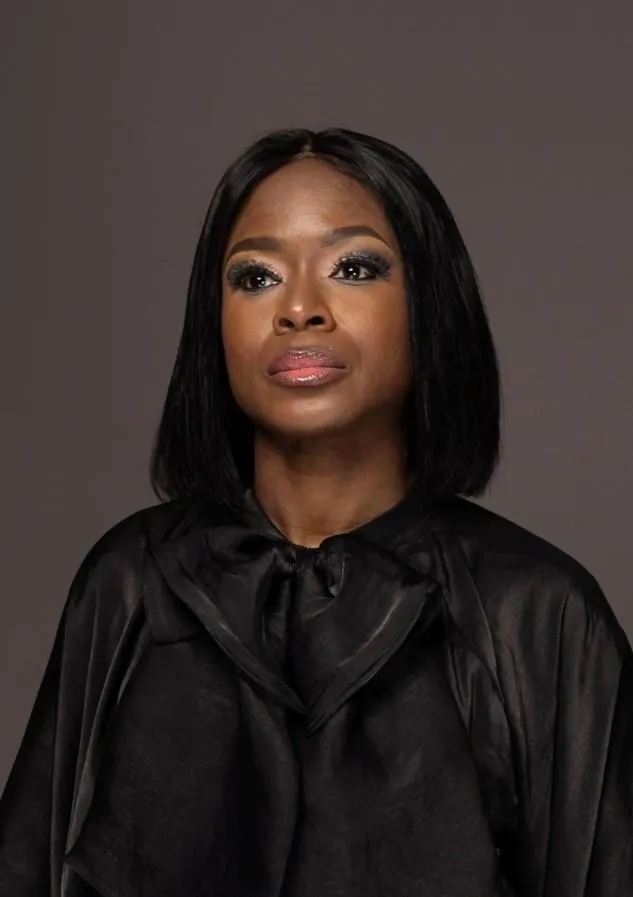Addressing sexual corruption: A call to protect women's dignity and rights

Professor Sope Williams is a leading expert in public procurement, anti-corruption and development law.
Image: Supplied.
Professor Sope Williams
As we mark another Women’s Day on 9 August, we must shift our attention to one unspoken challenge that affects women in South Africa: sexual corruption. Sexual corruption happens when women and girls are requested to perform sexual acts in exchange for access to public (and private) services or privileges. It is the abuse of actual or perceived power that sexually exploits those who seek benefits or seek to avoid deprivations tied to that power. The sexual exploitation may be physical, emotional or digital. It takes various forms, such as coercion, exploitation, and the abuse of power to obtain sexual favours.
Manipulation
South Africa has a problem with corruption, as well as sexual and gender-based violence. Sexual corruption lies at the intersection of these ills and is reinforced by patriarchy, the normalisation of transactional relationships, victim blaming, and the silence and shame surrounding sexual violence. It involves male authority figures abusing their positions to manipulate or victimise women and girls. Socio-economic disparities, gender inequality, and weak enforcement of laws compound the problem, allowing sexual corruption to persist.
Furthermore, misogynistic attitudes to the sexual abuse of women may normalise sexual corruption making it appear less serious than other forms of corruption. Where these attitudes combine with the power dynamics in sexual corruption cases — including fear of retaliation, lack of trust in law enforcement and the shame, stigma and secrecy surrounding sex — many women victims become unwilling to report it. Traditional gender roles also enable sexual corruption to thrive. Women are often perceived as having less power and agency, making them vulnerable targets for exploitation by those in positions of authority.
Accountability
Moreover, societal attitudes that normalise sexual misconduct hinder prevention and accountability efforts. The normalisation of sexual abuses and the lack of reporting distort our understanding of the problem, making it difficult to address effectively. Because sexual corruption occurs through psychological and not physical coercion, it may be difficult to prove that a sexual act was coerced, in the absence of physical evidence. We have witnessed cases and allegations of sexual corruption against prominent figures in the judiciary, high-ranking politicians and law enforcement officials. This highlights the reality that powerful men often abuse their authority for sexual gain. They are also able to evade accountability. First, because sexual corruption is often based on psychological coercion, hard evidence might be lacking for a criminal conviction. Second, investigations into allegations of sexual corruption and sexual misconduct are often not concluded because powerful men’s proximity to power — aided by political interference —may shield them from accountability.
Trust
Our society also weaponises shame against women victims of sexual misconduct and make it less likely that they will press charges, especially against powerful men. When perpetrators are shielded or when cases are mishandled, it discourages victims from coming forward and perpetuates cycles of abuse. Efforts to create safer reporting mechanisms and provide gender-sensitive training face systemic challenges. Sexual corruption erodes trust in public institutions, reinforces harmful stereotypes and power imbalances, perpetuates gender inequality, fosters a culture where abuse of power is tolerated or ignored, and hampers social and economic development.
Victims of sexual corruption often experience psychological trauma, social stigmatisation, and economic hardship. Some have committed suicide. Sexual corruption and other forms of gender-based violence are also financially costly. South Africa’s anti-corruption laws are inadequate to address sexual corruption. The law is male-centered and fails to account for situations where women and girls are coerced to engage in sexual acts to access the public services to which they are rightfully entitled. It also discourages victims of sexual corruption to come forward, fostering a culture of impunity and threatening gender equality and the integrity of public institutions.
Human rights
Sexual corruption is criminalised (without criminalising the victim) only for certain categories of persons and certain contexts — such as violent sexual acts; offences involving minors, learners, students; cases involving employees of an institution (but not job seekers);and instances of sexual blackmail using private images. Sexual corruption in other spheres is currently not covered by law. Consequently, it is not comprehensively prohibited or addressed with appropriate criminal remedies.
To fix this, we may need to introduce a new offence that sits within both anti-corruptionand sexual offences law. Recognising the gravity of sexual corruption, some civil society organisations are working to combat it through training programmes for police and the judiciary, and victim-friendly reporting procedures. While these efforts, awareness campaigns, and institutional reforms are commendable, they are not enough. A concerted effort from government, civil society, and communities is required to foster a culture of respect for the dignity of women and accountability for gender-based violence and exploitation. Only then can South Africa hope to eradicate sexual corruption and fully uphold the human rights and inherent worth of women.
*Williams is a leading expert in public procurement, anti-corruption and development law in the Department of Mercantile Law at Stellenbosch University.
Weekend Argus